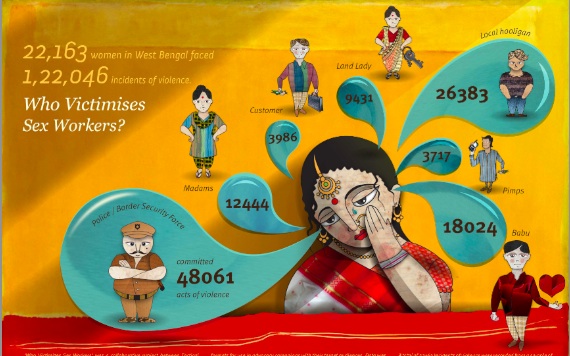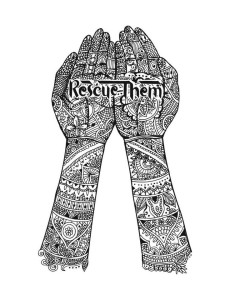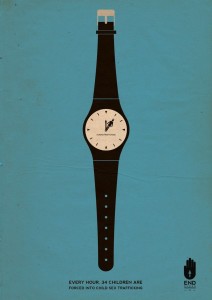(Dr. Pravin Patkar responds to ‘The police start arresting customers of sex workers’ - Pages 4 & 5 of Mumbai Mirror of 24 July 2015 )
It is perfectly legal in India for a woman or a man to sell her or his bodily sex to another adult man or woman respectively, against money. It is also legal for an adult man or woman to buy bodily sex from a heterosexual person.
But no freedom is absolute. There are always limitations borne out of the competing rights of civil society and other individuals.
The Trade
Every day, thousands of women and children continue to be trafficked into the organized sex trade across India. They are mostly illiterate, vulnerable, unorganized and belong to marginalized castes and classes. The sex traders as well as enforcement personnel, hand-in-glove, make regular illegal private income from the trade. Sex trade by using traffic victims is a fast growing illegal business across the world.
Every day, for a pittance of rupees, young women and children in the sex trade are raped by 8 to 10 customers each. They live without rights, freedom, justice or dignity. They do not even have the right or the voice to turn away a customer who refuses to use a condom while having sex. This puts them at the risk of contracting HIV infection for which they are again blamed and ostracised.
They are sold and resold in a vicious cycle of exploitation until they die untimely and miserable deaths.
The Law
The Immoral Traffic Prevention Act (ITPA) was passed in 1956 (then titled Immoral Traffic (Suppression) Act or SITA) but it was never used in text and spirit until the end of the century. The police would continue to book the victim women placed in public places by their pimps under Sec 110 of the Bombay Police Act instead of invoking the ITP Act.
Unlike the Bombay Police Act which allows the police and the judiciary to punish the women, the ITPA is progressive in considering prostituted women as victims and not offenders. It never aimed at punishing them. It also had a provision for the sealing of brothels. But like the rest of the Act, the provision took almost 50 years for it to be put to use in the country.
In 2007, Hon’ble Justice Hemant Gokhale of the Bombay High Court passed such an order for the first time in one of Prerana’s PILs. He made it binding on the Magistrate to pass the order for the sealing of brothels.
The provision for closure of the brothel and eviction of offenders under Section 18 of ITPA nonetheless remains ineffective as it is poorly drafted. Later attempts at amendment have grossly ignored strengthening this provision.
The Customers Create Demand
For the past 3 decades Prerana has been working in the red light districts of Mumbai to protect the rights and dignity of prostituted women and their children who are victims of commercial sexual exploitation and human trafficking. Among the various strategies and measures to end this slavery, we have been suggesting ‘Demand Reduction’.
Going after the customer who sexually exploits victims of trafficking and sex trade is an important action we have always sought from the enforcement agencies. Since 2000 we started pointedly and persistently insisting on the police booking customers under the then existing legal provisions. But even senior police officers who have always been helpful to Prerana’s cause were furious with the idea of booking customers.
They seemed to be under the myth that commercial sex is because of the unfulfilled sexual desire of many single men and unmarried youth in the city. Like compressed steam if not given release it will cause explosion. The police believe that prostitutes are ‘safety valves’ for the ungratified sexual desire in society. Most police personnel and their officers, therefore, adopt a tolerationist stance vis-a-vis the sex trade.
The customer is clearly the cause of the trade. It is he who creates the demand, looks for the pimp and negotiates with the pimp on the transaction, the provider, the place and the price of sex. He has sex with a woman who is a traffic victim and hence incapable of giving consent. His HIV status is not known to the prostituted women. Even if he is aware that he is positive, he sees no incentive in using a condom.
Some of the relevant findings of my own 2010 research study of 100 red light areas based prostituted women of Mumbai indicate as follows:-
- Almost 92% of women mentioned their client age group as between 55 and 65 years.
- 93% women reported that they do get customers who have their own families.
- 56% women reported that around 50% to 60% of their customers have families while only 27% women reported that around 40% of their customers have their families and only 6 % women thought that the percentage of their customers having families is between 20% and 30%.
- Only one woman reported that she knows about the HIV status of her customer.
Impediments To The Amendments
Although the law was called Immoral Trafficking Prevention Act, the basic term ‘trafficking’ was nowhere defined in any Indian law. India signed The United Nations Convention against Transnational Organized Crime in the year 2000. Finally in 2005, with the efforts of the anti human trafficking organizations in India and the American government, the government of India, with considerable reluctance, decided to amend the ITP Act.
Several factors were an impediment to the proposed amendment. First the sex trade is a big business and it is difficult to believe that such a widespread and violent activity can go on in the middle of the metropolises without the power holders being party to the trade and profits. The second factor was the abovementioned myth that haunted the police officers of prostitution as a ‘safety valve’ for unfulfilled sexual desire of single men.
Another factor impeding the amendment were platforms who deployed by the international funding organizations in the name of fighting HIV/AIDS. These individuals and organizations had taken a position to look after the health of the customer and to ensure that the trade is made legal and licensed. A number of pharmaceuticals and health officials saw a potential windfall in the opening up of the trade. Some of them eulogised prostitution as the ultimate expression of freedom by women. Others refused to distinguish between prostitution and any other work and sought it to be recognised as sex work. (However with the shrinking of the free flow of international funds for HIV/AIDS, this demand considerably weakened.)
Caught up between conflicting pressures, the government of India decided to give low priority to the anti trafficking agenda and treated the amendments in ITPA with sheer tokenism. The Amendment Bill was poorly drafted with several gap and flaws. Secondly, the amendment was permanently delayed. In the following decade, the 2005 Bill never once came before the Parliament.
Provisions of The Amendment
The 2005 ITPA Amendment Bill had a provision against the customer. Section 5 which dealt with procuration of persons for prostitution was expanded. In Section 5.A the definition of the term ‘trafficking’ on the lines of the UN Optional Protocol was sought to be incorporated in the ITP Act.
In Sub Section (c) of the Section 5, a vague line was added which stated something to the order of – ‘whoever visits or is found in a brothel with an intention to sexually exploit a victim of trafficking shall be punished.’ It aimed at booking the customers. I had made several submissions against this defective drafting.
In short this statement implied: –
1) ‘Whoever visits a brothel’ This implies that the scene of the crime had to be established as a brothel. This was the responsibility of the prosecution.
2) ‘With an intention to sexually exploit’ This implies that the ‘prosecution’ has the responsibility to prove the ‘intention’ of the accused.
3) ‘With an intention to sexually exploit’ The law till then had never defined ‘sexual exploitation’. Various laws which have come into effect like Amendment in the Criminal Laws, POCSO 2012, the Domestic Violence Act too do not define sexual exploitation.
4) ‘Sexually exploit a victim of trafficking’. This implies that the prosecution had the responsibility to prove that the visitor had the intention to sexually exploit a ‘victim of trafficking’. It was obviously the responsibility of the prosecution to prove that the victim of the offence was a victim of trafficking. Till that moment the offence of trafficking had not been defined in any Indian laws.
5) As the provision did not have a provision of presumption, the entire burden of proof was on the prosecution.
Surprisingly, despite such erroneous and counterproductive drafting, the government faced criticism from the pro-Sex work camps.
When the main criminal law of the land, the IPC, was sought to be amended in the aftermath of the public anger over the Delhi Gang rape case, the required amendments in the ITP Act were shifted to the IPC and Section 370 (which was against slavery) was modified and elaborated in order to incorporate a comprehensive definition of the term ‘trafficking’ in line with the Palermo Protocol (the three protocols that were adopted by the United Nations to supplement the 2000 Convention against Transnational Organized Crime.)
Two subsections 370-A (1) and (2) were added which made provisions to book the customer.
The text of the IPC Section 370 that was adopted via the amendment in the criminal law in 2013 is given below.
370. (1) Whoever, for the purpose of exploitation, (a) recruits, (b) transports, (c) harbours, (d) transfers, or (e) receives, a person or persons, by—
- — using threats, or
- — using force, or any other form of coercion, or
- — by abduction, or
- — by practising fraud, or deception, or
- — by abuse of power, or
- — by inducement, including the giving or receiving of payments or benefits, in order to achieve the consent of any person having control over the person recruited, transported, harboured, transferred or received, commits the offence of trafficking.
Explanation 1.— The expression "exploitation" shall include any act of physical exploitation or any form of sexual exploitation, slavery or practices similar to slavery, servitude, or the forced removal of organs.
Explanation 2.— The consent of the victim is immaterial in determination of the offence of trafficking.
(2) Whoever commits the offence of trafficking shall be punished with rigorous imprisonment for a term which shall not be less than seven years, but which may extend to ten years, and shall also be liable to fine.
(3) Where the offence involves the trafficking of more than one person, it shall be punishable with rigorous imprisonment for a term which shall not be less than ten years but which may extend to imprisonment for life, and shall also be liable to fine.
(4) Where the offence involves the trafficking of a minor, it shall be punishable with rigorous imprisonment for a term which shall not be less than ten years but which may extend to imprisonment for life, and shall also be liable to fine.
(5) Where the offence involves the trafficking of more than one minor, it shall be punishable with rigorous imprisonment for a term which shall not be less than fourteen years but which may extend to imprisonment for life, and shall also be liable to fine.
(6) If a person is convicted of the offence of trafficking of minor on more than one occasion, then such person shall be punished with imprisonment for life, which shall mean imprisonment for the remainder of that person's natural life, and shall also be liable to fine.
(7) When a public servant or a police officer is involved in the trafficking of any person then, such public servant or police officer shall be punished with imprisonment for life, which shall mean imprisonment for the remainder of that person's natural life, and shall also be liable to fine.
370-A. (1) Whoever, knowingly or having reason to believe that a minor has been trafficked, engages such minor for sexual exploitation in any manner, shall be punished with rigorous imprisonment for a term which shall not be less than five years but which may extend to seven years, and shall also be liable to fine.
(2) Whoever, knowingly by or having reason to believe that a person has been trafficked, engages such person for sexual exploitation in any manner, shall be punished with rigorous imprisonment for a term which shall not be less than three years but which may extend to five years, and shall also be liable to fine.'.
The Ironies, Paradoxes and Questions That Linger
There is an inherent weakness in the above provision for booking the customer of the sex trade. A customer is guilty only if he engages such person for sexual exploitation about whom he has the knowledge or reasons to believe that the person has been trafficked.
The provision does not state that a customer is guilty by the sheer act of engaging someone for sex. As there is no presumption clause, it becomes the responsibility of the prosecution to prove that the customer had the knowledge or reasons to believe that the person engaged for sex was a traffic victim. Nevertheless now that the provision is a part of the IPC, the chances that the police station will act on them have certainly improved. This is not to deny that the governments of Centre and State have taken significant efforts to train its police personnel over the issue of human trafficking over the past 10 years.
There are still more questions that continue to seek answers.
- The amendments came in force in March 2013. We have now crossed 2/3rd of 2015. Why was their implementation delayed?
- What is meant by ‘engaging’? Why wasn’t the term defined?
- What is meant by ‘Sexual Exploitation? POCSO 2012 has largely satisfactorily defined a variety of sexual offences. Although POCSO too does not define sexual exploitation it was possible to define sexual exploitation as a generic and inclusive term. POCSO provides for different punishments for different sexual offences against children. It also provides for punishment for attempting or abetting sexual offences against children. IPC Section 370 A. (mentioned above) covers the offence against minors but gives different punishment. However POCSO makes a provision that in case of overlapping that law may be used which provides for more punishment.
- Why within the IPC is there a difference between the punishments for engaging a minor and engaging a major?
For the IPC, a minor is a person who is not a major (a person below 18 years). For ITPA a minor is a person between 16 and 18 years of age. The attempt at amendment in ITPA sought to eliminate the distinction between minor and child (below 16 years). There is a move to bring in uniformity among various laws in terms of treating every person below 18 years as child. An criminal law amendment that came one year after POCSO could have avoided discrepancies and confusion by adopting a better terminology.
There is one more irony implicit in IPC 370 A. 1 & 2. If a customer engages a child of 16 years for sexual exploitation he will be punished severely. If the state and the society fail to rescue that child in time and the child continues to remain in captivity and is exploited till she crosses 18 years, then the a customer engaging her for sexual exploitation will get punished comparatively lightly. Is that fair? But such ironies and paradoxes are for the law makers to correct.
The Right Step
In the meantime, congratulations are in order for Mr. Rakesh Maria of Mumbai Police and to anti human trafficking organizations like International Justice Mission for going after the customers of sex trade. It is the customer that creates the unholy market that traffics, enslaves and dehumanizes innocent kids and young women. Going after the customer is one of the ‘demand reduction’ measures internationally recommended in the fight against human trafficking.
We cannot allow the customers to escape. The customer must be punished.
- Prof. (Dr.) Pravin Patkar
(Prof. (Dr.) Pravin Patkar is the Adjunct Professor at Amrita Vishwa Vidyapeetham and the Co-Founder of the NGO PRERANA and the Director of their Anti-Trafficking Resource Center. He is the Fulbright Academic and Professional Excellence Fellow -2015-16)





No comments:
Post a Comment